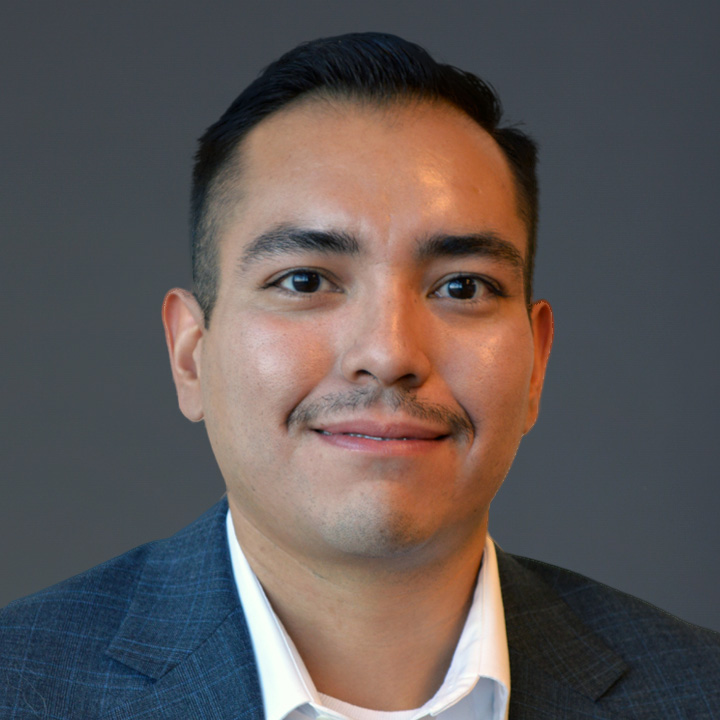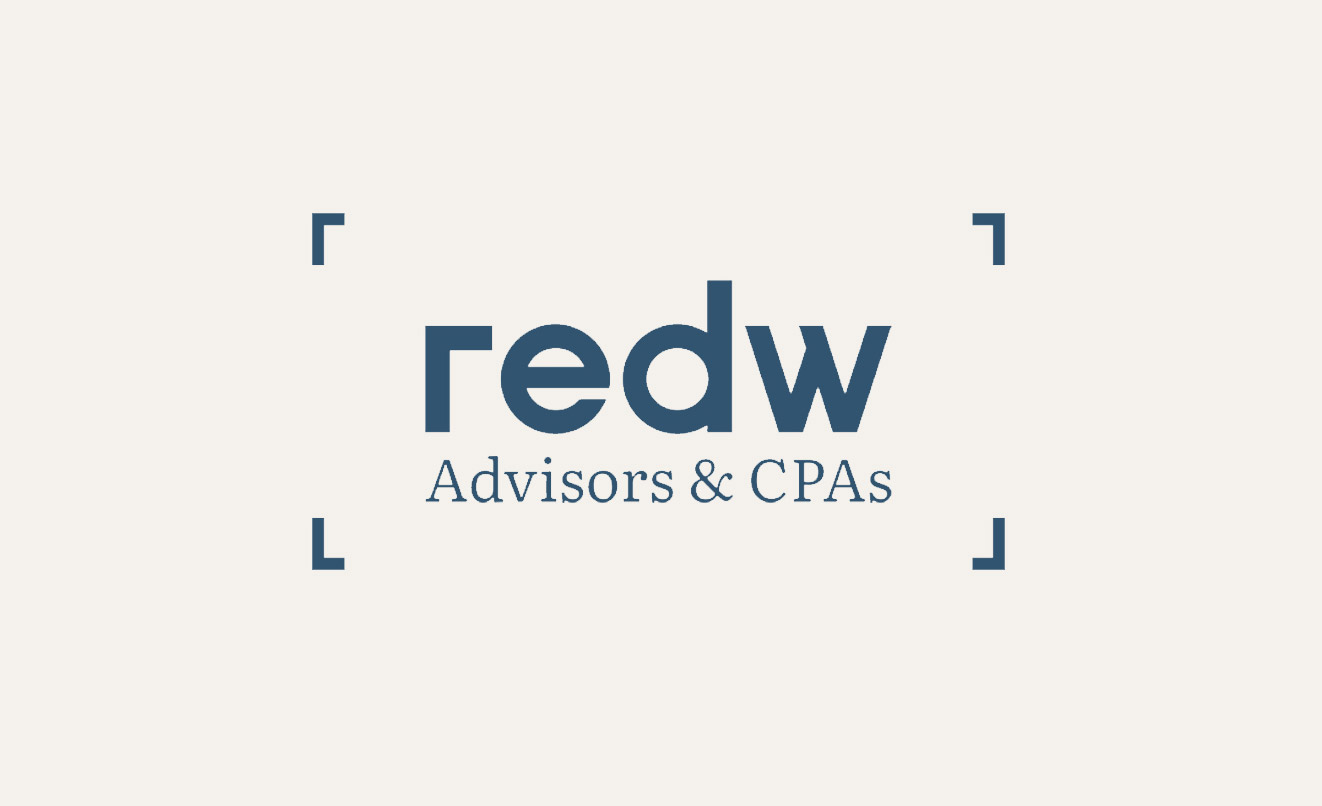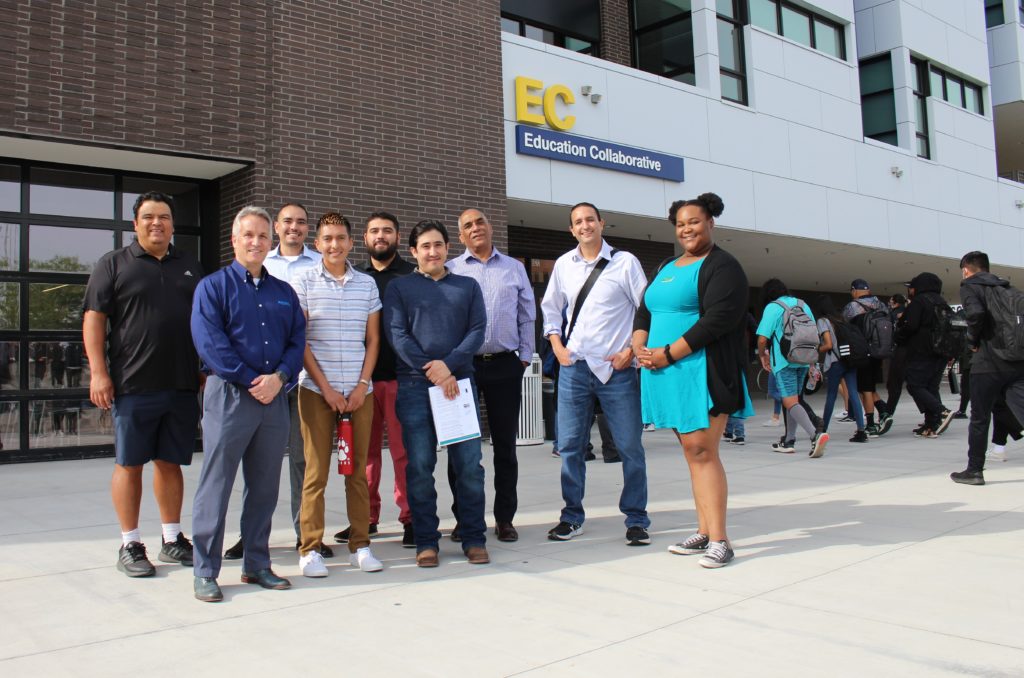Celebrating Native American Heritage Month

Michael Mora, CPA
Michael Mora, CPA, joined REDW in 2019 and currently serves as an Accounting Specialist Manager. He is an enrolled member of the Navajo Nation. Michael has been a Governing Council member for the Native American Community Academy (NACA) since 2018 and was instrumental in bringing the REDW financial literacy program to the school in conjunction with Junior Achievement of New Mexico (JANM). NACA is a tuition-free, K-12 charter school serving a diverse student body from many cultural and ethnic backgrounds, including more than 60 different Tribal Nations. Michael Mora and volunteer team members from REDW’s Albuquerque office, are teaching literacy courses to NACA high school students, answering their questions about earning a living, budgeting, savings, and managing credit and debt.
Michael is also a volunteer peer mentor in the Rising Native Graduates program with the Native Forward Scholars Fund, which currently administers the REDW Native American Scholarship in Accounting.
Q: HOW DID YOU GET INTERESTED IN VOLUNTEERING FOR FINANCIAL LITERACY?
Just knowing that REDW had offered a financial literacy program in the past, before COVID in 2016 and 2019, I wanted to be part of the revitalization. In a prior firm, I had also volunteered in a financial literacy program on the Navajo reservation. Ever since I was I in college, I wanted to help kids learn and give back to my community in any way possible.
I started using the JANM program when I was still in college at New Mexico State University, but it wasn’t necessarily focused on Native American communities. We worked with a mix of community organizations and elementary schools, so I was familiar with JANM training and the overall program. They make it so easy – you have to prepare for each lesson, but you can read through the materials the same day you present and everything is very well organized. And the participating organizations are always so ecstatic to work with any volunteer group that wants to help.
Q: WHICH CLASS ARE YOU TEACHING FOR NACA?
The program we designed for NACA runs for four weeks and multiple sessions and I’m working on two of the lessons, including consumer protection. The basic theme is cybersecurity – how to keep your information safe on social media and websites. Other modules have tackled how to budget and how to consider earnings potential, whether to go to college, the different levels of education required for different jobs and how that affects lifetime earnings. The program includes interactive games and JANM also have a lot of video resources to pull into the lessons.
“As an instructor, you always worry if the kids will be engaged in the class, but we were lucky to have a class teacher who helped direct the flow, in case the kids were shy and we didn’t get questions.”
But out of 44 students, there were a good handful of students that were always involved, that continuously asked questions. It’s rare to be taught financial literacy in high school. There may be access to Economics, but it’s not about managing your own personal economics, it’s more the economy in general. One of the most eye-opening lessons helps students to consider their earning potential and how that actually impacts their lives.
On September 9, 2022, REDW began its relaunch of financial literacy programs for students after the health crisis. Mora is pictured above with the REDW volunteer team, NACA Director James Montoya (far left), and Junior Achievement Program Coordinator Jordana Thompson (far right) at CNM’s Education Collaborative building, home of NACA.
Q: DID YOU HAVE ACCESS TO ANY OF THIS INFORMATION WHEN YOU WERE IN HIGH SCHOOL?
Not at all. Even if you’re not studying business in college, it would have been good if they had offered it, because a lot of people come from impoverished areas and just never have an opportunity to learn about personal finance.
As a financial professional working in public accounting, one of the main reasons I enjoy the program is being a role model to the kids and seeing their excitement. I’m an example of what is possible for them. When they look up to you, it’s your chance to offer them encouragement on how to handle money and plan for their futures.
Q: DID YOU GROW UP WITH FINANCIAL ROLE MODELS?
Yes. My grandparents and auntie were my role models. My family owned a business for over 50 years (recently closed), running a gas station, grocery store, and laundromat on the Navajo reservation. During the summers, my cousins and I would get shipped out there to help out with the family business. I would never have gotten into accounting if we didn’t have that family business. Since we began in middle school, we started with small stuff, like counting the money in the cash register and comparing it to the sales reports. Later, I did some bookkeeping with the gas station, nothing like the reconciliation services I provide now, but those little roles helped me develop a business acumen.
Q: IS THAT WHY YOU WANTED A CAREER IN PUBLIC ACCOUNTING?
I honestly did not know what public accounting was until I got further into my accounting courses in college. Without that early exposure, I may have gone into another field such as engineering. I joke that I loved to count money and enjoyed math, so that’s why I chose accounting.
Going into public accounting, you get exposed to so many different industries and clients. You get to learn so much so fast. I started my career as an auditor, because I wanted to audit the Navajo Nation, so I went to work for the accounting firm that had the Nation as a client. Even in college, I always thought big – like I may run for President of the Navajo Nation someday. With a background in accounting, I learned about the Nation’s financial statements by auditing them.
“Service to Tribal Nations is also what led me to want to work at REDW. We serve so many Tribal governments and organizations and the firm is known for that.”
I also wanted to transition from audit to audit preparation and help Tribal governments reconcile their records and get them audit-ready. My end goal is to work for the Navajo reservation and public accounting is my first steppingstone.
Q: WHY DO YOU THINK IT’S IMPORTANT FOR YOUNG PROFESSIONALS TO GIVE BACK?
I want to be a role model to the next generation. Being involved with the American Indian Program in college, I heard stories from my friends about how they struggled in high school because they weren’t supported enough by teachers or the school system. They weren’t told they could go to college or trade school. Hearing this, I became determined to provide support to young students. A lot of Native American students don’t want to leave the reservation because they’re so used to having family close by and having that support system. Ever since college, I wanted to inspire more kids to go to college, maybe by serving as a motivational speaker or starting a scholarship program.
Too many students don’t get the push they need to understand what is possible or what they’re capable of. I want young professionals to say “Hey, you’re able to go to college, and if you go, you can bring those skills back to the Tribe.”
“I want to change the idea of what a student thinks is possible.”
From my own experience, if you want to be a part of any business organization, having an accounting background is very helpful.
REACH OUT TO MICHAEL MORA, CPA BELOW.






